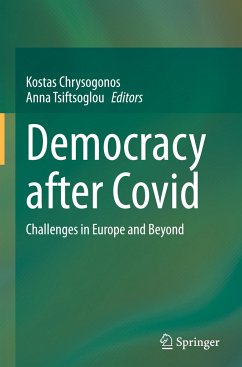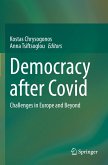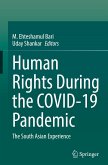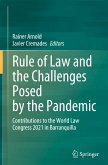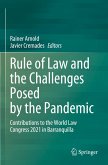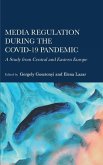This book, one of the first of its kind, explores the impact of the COVID-19 pandemic on modern Western democracies from a comparative constitutional law and policy perspective. Through 11 scholarly contributions, it tackles cutting-edge topics for the liberal state, such as emergency legislation, judicial scrutiny of COVID-19 measures, parliamentarism and executive decision-making during the pandemic. The book examines these topics both from a microscopic national constitutional angle, with a focus on European states, and from a macroscopic regional and comparative angle, on par with the American example. The COVID-19 pandemic is thus treated as an international state of emergency that has enabled far-reaching restrictions on essential human rights, such as freedom of movement, freedom of religion or even major political rights, while giving rise to the 'administrative state.'
This edited volume explores each of these pressing themes in this exceptional context andevaluates different liberal states' responses to the pandemic. Were these responses reasonable, effective and democratic? Or is the COVID-19 pandemic just the beginning of a new era of global democratic backsliding? How can liberal democracies manage similar crises in future? What lessons have we learned? The institutional knowledge gained turns out to be the key for the future of the rule of law.
This edited volume explores each of these pressing themes in this exceptional context andevaluates different liberal states' responses to the pandemic. Were these responses reasonable, effective and democratic? Or is the COVID-19 pandemic just the beginning of a new era of global democratic backsliding? How can liberal democracies manage similar crises in future? What lessons have we learned? The institutional knowledge gained turns out to be the key for the future of the rule of law.

